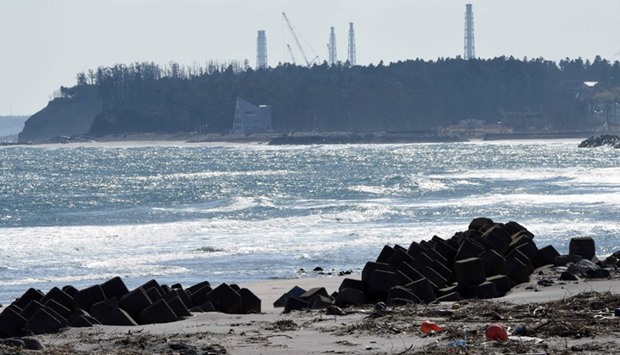Tokyo Electric Power will have to dump radioactive water from its destroyed Fukushima nuclear power plant directly into the Pacific Ocean, Japan's environment minister said on Tuesday.
After the plant was crippled by an earthquake and tsunami in 2011, Tokyo Electric, or Tepco, has collected in tanks at the wrecked sites more than 1 million tons of contaminated water from the cooling pipes used to keep fuel cores from melting.
The utility says it will run out of space by 2022.
‘The only option will be to drain it into the sea and dilute it,’ Yoshiaki Harada told a news briefing in the capital. ‘The whole of the government will discuss this, but I would like to offer my simple opinion.’
A final government decision on disposing of the tainted water awaits a report from an expert panel.
Harada did not say how much water would need to be put into the ocean.
Tepco officials were not immediately available for comment.
Any green light to dump the waste into the sea, however, could anger neighbours such as South Korea, which summoned a senior Japanese embassy official last month to explain how the country would deal with the Fukushima water.
Ties between the East Asian nations are already at a low ebb following a compensation dispute over Koreans forced to work in Japanese factories in World War Two.
Coastal nuclear plants commonly dump into the ocean water that contains tritium, an isotope of hydrogen that is hard to separate and is considered to be relatively harmless.
Tepco, which also faces opposition from local fishermen, admitted last year that the water in its tanks still contained contaminants beside tritium.

